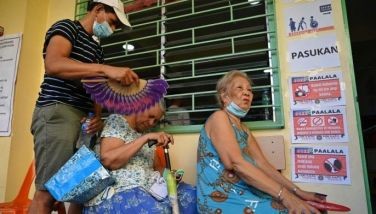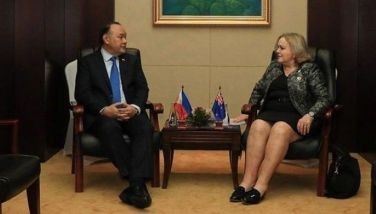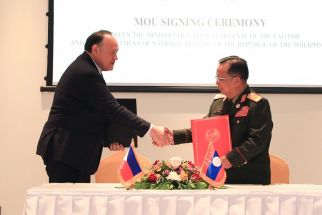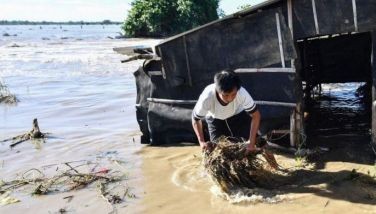WHO: Relaxing quarantine restrictions better done 'in very targeted manner'
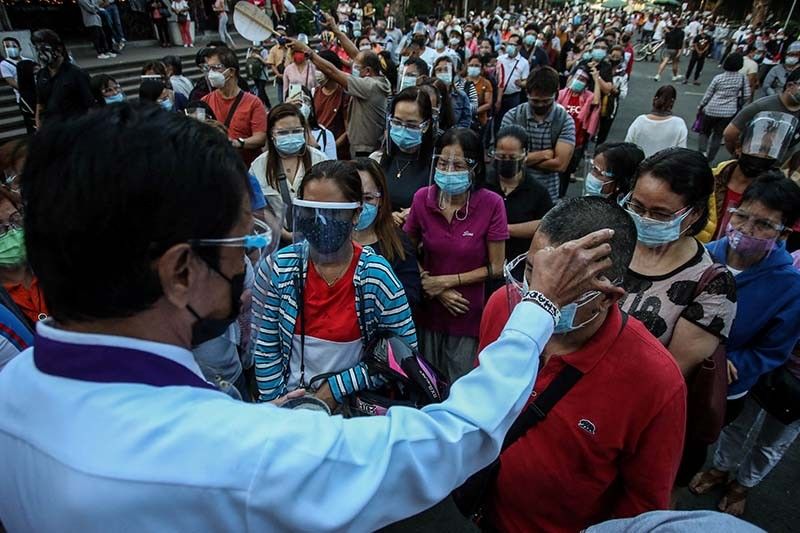
MANILA, Philippines — The country might experience a surge in COVID-19 cases that could overwhelm the health system anew should there be further relaxation of restrictions, the World Health Organization said Thursday.
In a briefing, Rabindra Abeyasinghe, WHO country representative, pointed out that there is a “relatively high level” of community transmission, which is “complicated” by the presence of new coronavirus variants.
“If we now go for large-scale relaxation of measures given the current existing situation and the circulation of variants, and the fact there’s still many months before a large proportion of Filipinos are vaccinated, we may witness a situation where there’ll be an upsurge of cases and the overwhelming of the health [system],” Abeyasinghe said.
Citing the need to address hunger and income losses, the National Economic and Development Authority this week recommended placing the entire Philippines under Modified General Community Quarantine—the loosest quarantine mode—next month. President Rodrigo Duterte is studying the proposal
Voting 9-8, Metro Manila mayors agreed to recommend to the national government that the capital region be placed under MGCQ beginning March. Although they are not binding in any way, the coronavirus task force has often mirrored the mayors' recommendations. These were later approved by the chief executive.
The OCTA Research Team warned that the capital region—the epicenter of the coronavirus outbreak—“will be under a constant threat of a surge” should it shift to MGCQ. It also stressed that the government must finish inoculating all health workers in the region before relaxing restrictions.
Authorities earlier announced the delivery of the initial batch of COVID-19 vaccines from the COVAX facility could be expected by mid-February. But vaccine czar Carlito Galvez said indemnification requirements caused the delay.
The government has been also criticized for its slow pace in securing highly coveted vaccine shots. It aims to vaccinate at least 50 million Filipinos this year alone.
‘Careful balance’
Abeyasinghe stressed that the easing of quarantine measures must be done in a targeted manner and with understanding of economic benefits as well as health risks.
“I believe there’s still need to maintain these restrictions. That does not mean that we cannot loosen up in areas where the economy will benefit. But that has to be done in a very targeted manner,” the WHO country representative said.
“Careful balancing of this situation is necessary. We understand there are significant economic burdens on sectors of the population and there is an urge to relax but as we have been saying right from the beginning, every measure needs to be carefully calibrated and decided upon before being implemented,” he added.
Most areas in the Philippines are now under MGCQ, where about 75% of industries are permitted to operate.
Only Metro Manila, Cordillera Administrative Region, Batangas, Tacloban Cty, Davao City, Davao del Norte, Lanao del Sur and Iligan City are under stricter GCQ.
To date, the Philippines has over 553,000 cases, with 11,577 deaths.
- Latest
- Trending


























